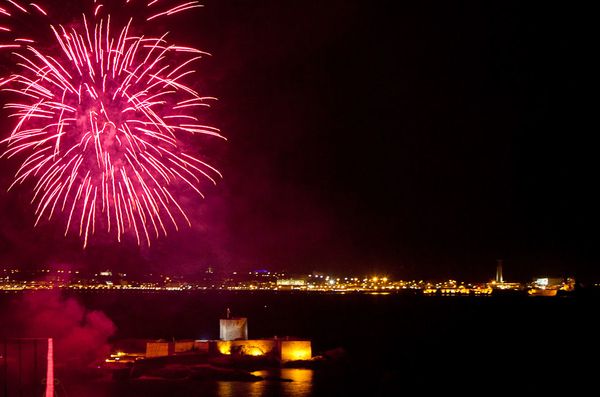

Firefighters are reminding Islanders that fireworks are not toys and can cause horrific life-changing injuries and it’s children that suffer in over half of all firework injuries every year.
Fireworks went on sale last week and they are urging people to enjoy them at one of the many professionally organised events planned around the Island where it’s safer than letting them off at home.
Crew Commander Toby Aubert said: “The firework safety message seems to be a very hard one to get across. We certainly don’t want to spoil the fun, but people must respect fireworks and understand that they are explosives, not toys.
“Even small fireworks are capable of inflicting horrific life-changing injuries. When you understand this, it makes you wonder why people still “play” with fireworks.
“Sadly, I can only imagine that those who still run the risks do so only because they have never been directly involved, or witnessed first-hand, the terror and shock that accompanies such incidents.”
If you do plan to let off some fireworks at home, here’s their advice to make sure you do it safely:
Sparklers get five times hotter than cooking oil so don’t give them to a child under five;
Buy your fireworks from a reputable shop that conform to the latest safety standards (BS 7114);
You can buy and set off most fireworks that come under ‘Categories 1 to 3’, ones that you can use indoors, in your garden or at a display but always read the packet carefully to make sure they are suitable to use where you want to;
Only have one person in charge in charge of the fireworks – if it’s you make sure you read the instructions in daylight and don’t drink any alcohol until all the fireworks have gone off. Set them all up in daylight, you’ll still need to inspect the area even if you are really familiar with it;
Make sure your pets are safe and out of the way;
On the night make sure you have:
A torch
A bucket or two of water
Eye protection and gloves
A bucket of soft earth to put fireworks in
Suitable supports and launchers if you’re setting off Catherine wheels or rockets
After your display, wear gloves and carefully put all the used fireworks into a bucket of water overnight
Be really careful if a firework hasn’t gone off – leave it alone for at least an hour and then stick it in a bucket of water overnight.
The Fire & Rescue Service don’t want people letting off sky lanterns because they say they are a fire hazard and dangerous for wildlife and livestock. They’ve often been mistaken for marine distress flares resulting in an emergency response from the Coastguard.
Here are some of their guidelines if you do intend to use them:
Do not use sky lanterns when their likely path crosses a flight path;
Ideally set sky lanterns to be blown out to sea;
Inform the Jersey Coastguard of your intensions.
If you plan to light a bonfire:
Make sure your fire is well clear of structures like sheds, fences and cables;
Don’t use petrol to light the fire – often the vapors can collect and explode violently;
Keep a bucket of water or a garden hose nearby - in case of emergencies;
Don’t leave the bonfire unattended;
Keep children and pets away from the bonfire;
Don’t throw any fireworks into the fire;
Don't burn aerosols, tyres, canisters or anything containing foam or paint - many produce toxic fumes and some containers may explode, causing injury;
Once the bonfire has died down, spray the embers with water to stop it re-igniting or spreading.
Comments
Comments on this story express the views of the commentator only, not Bailiwick Publishing. We are unable to guarantee the accuracy of any of those comments.